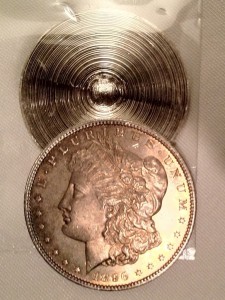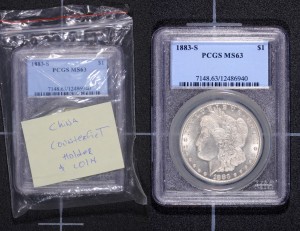With the midterm elections behind and the anticipation of the changes, congress still had work to do in the lame duck session. Over the last few sessions, congress has been their most productive during lame duck session as polling and focus groups has lead to those running for re-election to fearing the fast moving news cycles. Even the least controversial measures can be side tracked when members think that someone is watching that could misconstrue even the best of intentions.
But good things come to those who wait. Monday afternoon, December 15, 2014, H.R. 2754, the Collectible Coin Protection Act was passed in the Senate. The bill is on the way to the White House for President Obama’s signature, which should be a formality. The Collectible Coin Protection Act was first introduced to in the U.S. House of Representatives on May 7, 2013 to amend and updates the Hobby Protection Act that was passed over 30 years ago. The new law will allow law enforcement to take criminal action and individuals to take civil action against manufacturers, importers, and sellers of counterfeit coins and bullion products. It also allows the enforcement against the unauthorized use of registered trademarks belonging to collectible certification services.
Given the changes in the way we do business today, one of the more significant issues with the Hobby Protection Act is that only the manufacturers of the counterfeits could be prosecuted. In most cases, the manufactures of these counterfeits are hiding behind the Great Wall out of the legal reach of United States law enforcement. The Collectible Coin Protection Act will update the law to add the sellers and distribution of those coins to the targets of enforcement. If we cannot get to the makers of these fakes, then those who distribute that contraband can be prosecuted.
Further expanding the legal net to catch the scofflaws is the new provision to include “any person who provides substantial assistance or support to any manufacturer, importer, or seller” who knowingly engages in any act that violates this law. In other words, this adds the accomplices and those who support any part of the act of production and selling counterfeit United State coins.
If you buy a counterfeit coins, you can now take action against the the counterfeiter, their agents, the seller, and anyone else in the supply chain who was involved in the manufacture and sale of the coin. Even if you unwhittingly buy the counterfeit coin via an online auction and attempt to flip it hoping to recover your money, the buyer can sue you as the seller of contraband. To help fight the counterfeiting of third-party certification service holders, the act extends trademark violation and the ability to sue for remedies.
These new provisions will allow collectors, dealers, and grading services to bring legal actions that are much more effective, with much stronger remedies than previously existed. It will allow those harmed to work with the Justice Department to bring criminal actions where appropriate.
Congress engrossed the bill and sent it to the White House on December 15, 2014. It is currently waiting for President Obama’s signature. It will be a good present to the holiday when he signs this bill into law.



